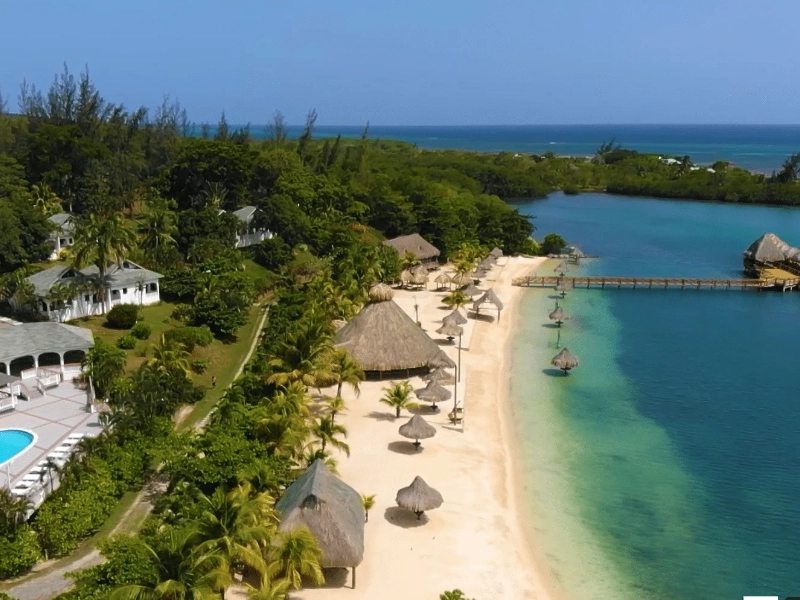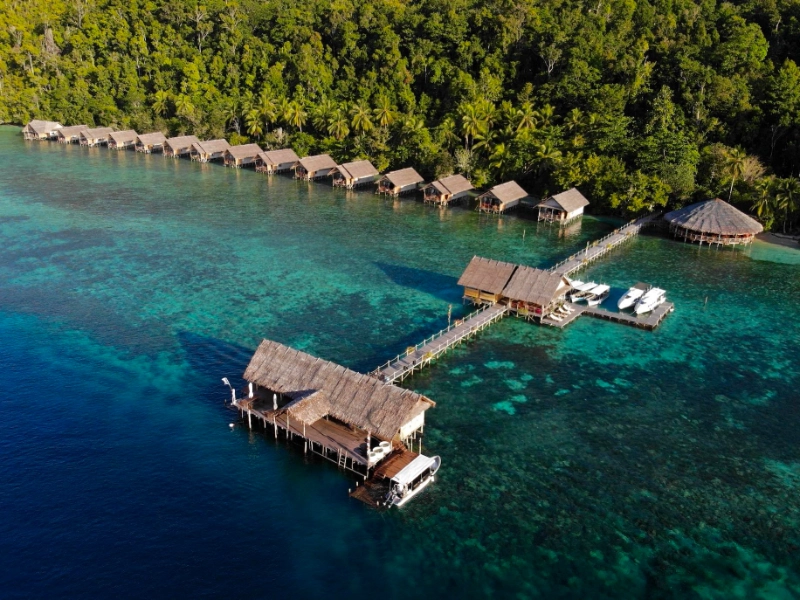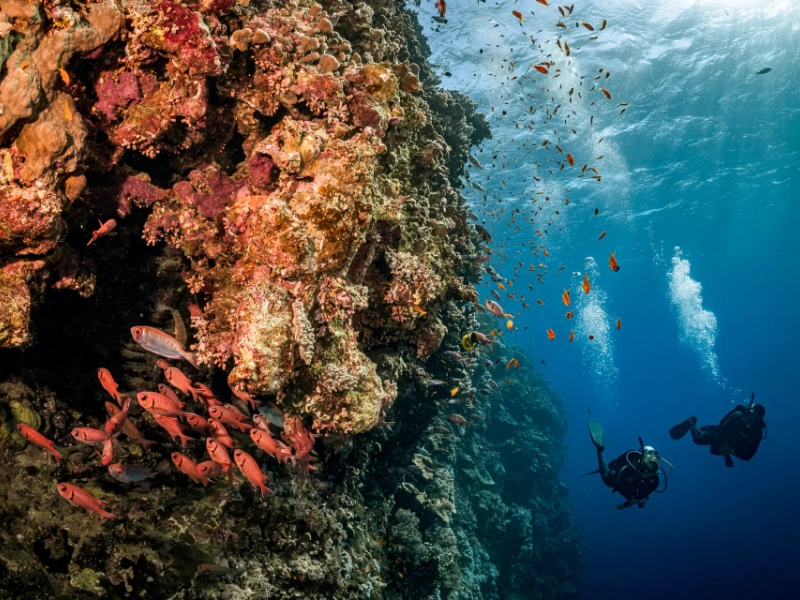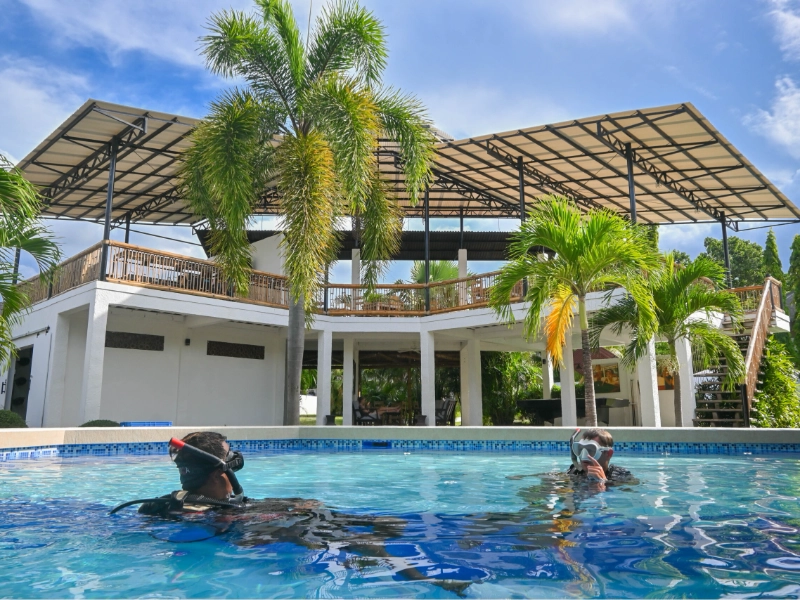As travelers become more environmentally conscious, many are seeking experiences that align with their eco-friendly values. Dive resorts are increasingly responding to this trend by integrating sustainability practices into their operations. These efforts range from reducing carbon emissions to implementing responsible waste management strategies, often accompanied by on-site marine conservation initiatives.

Adopting an eco-friendly approach involves minimizing energy consumption both above and below the waterline. Dive resorts are turning to energy-efficient technologies, such as solar panels, and promoting sustainable practices like recycling and the reduction of single-use plastics. For example, resorts that provide pump-action shampoo and refillable water bottles help cut down on plastic waste. Additionally, many eco-conscious dive resorts strive to reduce reliance on fossil fuels by utilizing renewable energy sources like wind and solar power. This includes installing energy-efficient lighting, cooling systems, and using natural materials for building insulation. Marine conservation initiatives are also vital to a dive resort’s sustainability mission. By funding or participating in ocean clean-ups, scientific dives, and species identification projects, these resorts contribute significantly to the preservation of marine environments. Guests are encouraged to choose resorts that actively engage in these conservation efforts and organize events that involve both visitors and locals.
 To demonstrate environmental responsibility, dive resorts must actively promote marine conservation and provide educational opportunities for their guests. This includes teaching visitors about marine ecosystems and the importance of not touching, feeding, or disturbing sea creatures during their dives. It’s essential to educate guests on preserving underwater structures and preventing damage to coral reefs.
Some forward-thinking dive resorts incorporate sustainability into their core operations, advocating for marine preservation through initiatives such as installing mooring buoys to protect reefs from boat anchors or developing turtle research and rehabilitation programs. These resorts not only positively impact the environment but also support local economies by creating jobs and fostering community engagement.
To demonstrate environmental responsibility, dive resorts must actively promote marine conservation and provide educational opportunities for their guests. This includes teaching visitors about marine ecosystems and the importance of not touching, feeding, or disturbing sea creatures during their dives. It’s essential to educate guests on preserving underwater structures and preventing damage to coral reefs.
Some forward-thinking dive resorts incorporate sustainability into their core operations, advocating for marine preservation through initiatives such as installing mooring buoys to protect reefs from boat anchors or developing turtle research and rehabilitation programs. These resorts not only positively impact the environment but also support local economies by creating jobs and fostering community engagement.
 Many dive resorts are taking significant steps to minimize their environmental footprint through proactive waste management strategies. These include recycling programs, eliminating single-use plastics, encouraging the use of reef-safe sunscreen, and organizing beach clean-ups. Additionally, by adopting mooring buoys instead of traditional anchoring practices, resorts help protect delicate marine ecosystems.
Efforts extend to broader marine protection initiatives, such as contributing to ranger salaries and reporting illegal activities within Marine Protected Areas. Many resorts align their goals with Sustainable Development Goal 14 (SDG14), which aims to expand marine protected areas to cover 30% of the world’s oceans by 2030.
These combined efforts, alongside the increasing demand for sustainable travel experiences, are reshaping the luxury and adventure tourism sectors. They are fostering transparency and trust within the industry by establishing eco-conscious standards that resonate with consumers. This shift in demand presents a unique opportunity for businesses to enact meaningful change within the marine ecosystem.
Many dive resorts are taking significant steps to minimize their environmental footprint through proactive waste management strategies. These include recycling programs, eliminating single-use plastics, encouraging the use of reef-safe sunscreen, and organizing beach clean-ups. Additionally, by adopting mooring buoys instead of traditional anchoring practices, resorts help protect delicate marine ecosystems.
Efforts extend to broader marine protection initiatives, such as contributing to ranger salaries and reporting illegal activities within Marine Protected Areas. Many resorts align their goals with Sustainable Development Goal 14 (SDG14), which aims to expand marine protected areas to cover 30% of the world’s oceans by 2030.
These combined efforts, alongside the increasing demand for sustainable travel experiences, are reshaping the luxury and adventure tourism sectors. They are fostering transparency and trust within the industry by establishing eco-conscious standards that resonate with consumers. This shift in demand presents a unique opportunity for businesses to enact meaningful change within the marine ecosystem.
 Eco-friendly dive resorts often implement marine conservation initiatives that benefit local environments and wildlife. They frequently collaborate with local organizations to fund or assist in marine protection efforts.
As global awareness of environmental issues grows, travelers are increasingly seeking experiences that reflect their values. They demand transparency regarding eco-friendly options and are becoming more vigilant against “greenwashing” in the tourism industry.
Many tourists wish to participate in marine conservation activities during their dive trips, such as ocean clean-ups and scientific diving. These activities not only allow divers to contribute directly to the protection of marine life and habitats but also enhance their appreciation for the underwater world. Such initiatives are highly valued by scuba tour operators, as they generate revenue, engage guests, and foster a sense of community pride.
Eco-friendly dive resorts often implement marine conservation initiatives that benefit local environments and wildlife. They frequently collaborate with local organizations to fund or assist in marine protection efforts.
As global awareness of environmental issues grows, travelers are increasingly seeking experiences that reflect their values. They demand transparency regarding eco-friendly options and are becoming more vigilant against “greenwashing” in the tourism industry.
Many tourists wish to participate in marine conservation activities during their dive trips, such as ocean clean-ups and scientific diving. These activities not only allow divers to contribute directly to the protection of marine life and habitats but also enhance their appreciation for the underwater world. Such initiatives are highly valued by scuba tour operators, as they generate revenue, engage guests, and foster a sense of community pride.